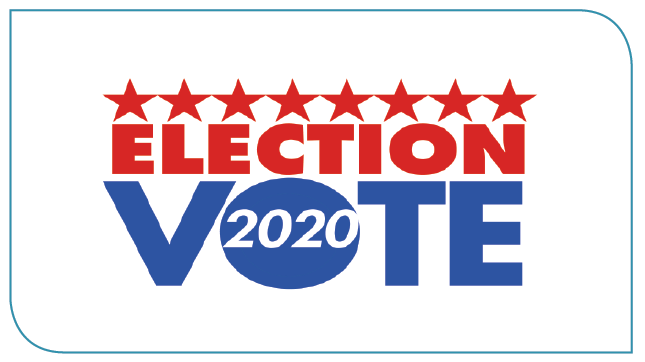Now that November 2019 state elections have occurred, AFM members should prepare to exercise their right to vote in upcoming 2020 national elections. The federal elections that will take place on November 3, 2020 will play a major role in determining the forward progress of the nation and, with major challenges to our pensions, our workplace security, important kitchen table/family issues, as well as the future direction of our industry, now is the time for each of us to weigh in with our vote.
It is also the time to prepare to participate. There are five major considerations for each of us to place on our crucial “to do” lists. By using the following tools, you can assure that you are firmly up to date and ready for the 2020 elections.
Register to Vote
Registering with the political party of your choice is the first priority. Registration is permanent in most states. States will require re-registration if you decide to change parties, change your address, change your name, or, in some instances, you marry.
You may gather official information on voter registration online at www. vote.gov. Here you can find out where to register by state. If you would prefer to register in person, you may do so at your state or county election office, your department of motor vehicles, armed forces recruitment centers, state and county public assistance offices, and some public libraries. Each state, except North Dakota, requires each voter to register. However, if you voted in the November 2019 state elections, you are considered officially registered.
Registration deadlines can be found by state at www.usa.gov/election-office. Likewise, early voting and absentee voting is permitted in most states. You can determine what your state allows and what the rules are for exercising such privileges at www.usa.gov/absentee-voting.
When to Vote
There are two official dates to cast your ballot in 2020. First, on presidential and congressional primary dates and, secondly, during the General Election on November 3, 2020. A list of primary dates by state can be found here: http://bit.ly/when2vote. Polling places will be assigned once you register.
Who Should You Vote For?
Voting is a guaranteed right afforded to you by the Constitution. Aside from your personal preferences for any given candidate, the AFM would never dictate for whom you should cast your ballot. However, when it comes to workplace issues, we often make strong recommendations based on the voting records of House and Senate incumbents.
The following issues passed in the House of Representatives as well as the Senate give musicians greater latitude as relates to earning and job security. Please see the boxes below for congressional votes, bill cosponsors, and special caucuses that have been important to us over the years. I have also included a list of House and Senate Arts Caucus members who have helped save the National Endowment for the Arts (NEA), National Endowment for the Humanities (NEH), and Corporation for Public Broadcasting (CPB) by championing our issues over the years, time and time again.





